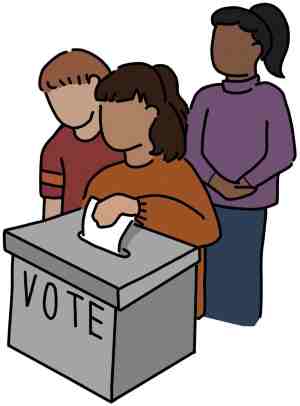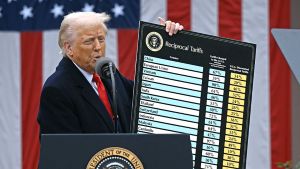
..
Why Prof Yunus proposes lowering the voting age
On December 27, 2024, Professor Muhammad Yunus, head of Bangladesh's interim government, proposed lowering the voting age to 17 years before the next general election. The current voting age is 18 years.
In line with Yunus' proposal, the country’s newly formed constitutional reform commission is also considering reducing the age limit to become an MP to 21 years, down from the current 25 years.
Yunus believes that young people are deeply interested in the future of the country and aims to increase their engagement in politics.
However, this proposal has sparked criticism. Politicians and analysts suspect that Yunus's intentions differ from those of countries that have already lowered the voting age. The BNP views this proposal as a tactic to delay the national election, which the Yunus administration is accused of wanting to do under the guise of reform.
Political analysts suggest that by lowering the voting age, Yunus intends to gain at least 10 million additional votes for a new political party being formed by so-called anti-discrimination students. According to media reports in Bangladesh, more than 10 million new voters would become eligible to vote if the age limit were reduced to 17.
Is it good to have voting rights at 17 years of age?
Lowering the voting age to 17 has its pros and cons. On the plus side, it can increase political engagement among young people, ensuring their voices are heard on issues that directly affect them, like education and climate change. It can also foster a sense of civic responsibility early on.
However, there are concerns about the maturity and political knowledge of 17-year-olds. Some argue that they might not have enough life experience to make informed decisions and could be more easily influenced by others.
Younger voters may be more susceptible to peer or family influence, which could impact their independent decision-making.
Without proper education on political systems and issues, younger voters may struggle to navigate complex policies or party platforms.
In some cases, extending the vote to younger people has not significantly increased voter turnout, raising questions about effectiveness.
The question of whether voting rights at 17 years of age is beneficial is subject to varying opinions and depends on the context of the country, its political system, and societal readiness. Implementing voting at 17 should be paired with robust civics education in schools to ensure young voters are well-prepared. The decision depends on whether a society believes its youth are ready and capable of contributing meaningfully to elections.
Global examples
Countries like Austria and Brazil, which allow voting at 16 or 17, have reported positive outcomes, including higher engagement in young adults.
Countries like Austria and Brazil, which allow voting at 16 or 17, have reported positive outcomes, including higher engagement in young adults.
As of December 2024, several countries have established voting ages below 18 for national elections. Specifically, eight countries permit citizens to vote at 16, and three countries allow voting at 17. The countries with a voting age of 16 are Argentina, Austria, Brazil, Cuba, Ecuador, Nicaragua, East Timor and Greece. The countries with a voting age of 17 are North Korea, Greece, and Indonesia.
It's important to note that voting ages can vary for different types of elections within a country, and some nations may have specific conditions or exceptions. For example, in certain countries, individuals aged 16 or 17 may be allowed to vote in local or regional elections but not in national ones. Additionally, some countries have compulsory voting laws for certain age groups.



